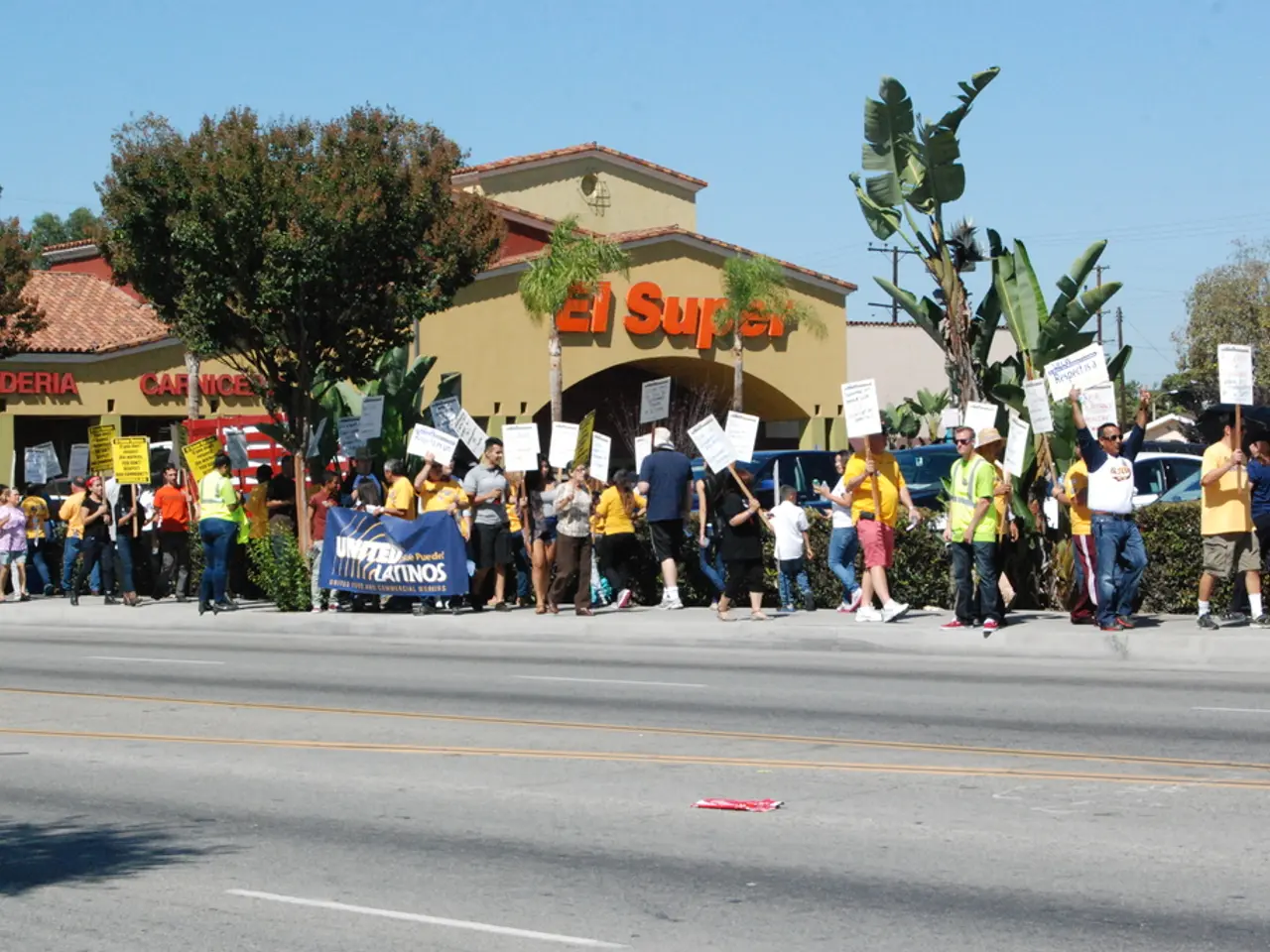Due to a flawed constitutional court election, the SPD now finds itself in a high-stakes pension crisis
In the political landscape of Germany, the SPD, under the leadership of Friedrich Merz's CDU/CSU coalition, is facing a challenging period following the withdrawal of Frauke Brosius-Gersdorf. The SPD's current strategy is focused on prioritizing social welfare issues, particularly pension reforms and care system improvements.
The SPD's political agenda is centred on securing pension sustainability and social welfare, with plans for long-term solutions beyond the current legislative period. A government working group is developing nursing care system proposals, and a pension commission is set to begin work in early 2026. However, the implementation of contentious proposals, such as integrating civil servants into the pension insurance system, faces opposition from the CDU/CSU partners.
The relationship between the SPD and CDU/CSU in terms of pension and welfare policies is marked by differing ideological approaches. While the CDU/CSU coalition under Merz advocates for economic pragmatism, emphasizing tax cuts, infrastructure investment, and corporate tax reductions, the SPD is committed to maintaining and reforming social benefits. This contrast has led to internal coalition friction, with political crises like the fallout from Brosius-Gersdorf's attempted appointment to the Federal Constitutional Court serving as a prime example.
Fiscal constraints under Germany's balanced budget rules further complicate the coalition's ability to fund expansive social programs, intensifying ideological divides. The SPD's push for social welfare reforms requires negotiation with fiscal conservatives in the coalition who resist new borrowing.
The SPD's Labour Minister, Bärbel Bas, is against the debate on longer working hours, while CDU Economics Minister Katherina Reiche has suggested that people should work longer, preferably until 70. This proposal has been met with criticism within the SPD, with Bas labeling it a "sham debate."
In terms of public opinion, only 29% of people are satisfied with the work of the federal government, according to the latest ARD Germany Trend. The SPD can use this dissatisfaction to its advantage, reminding the Union of its lack of loyalty and making political gains.
Despite losing ground in East Germany, the SPD is performing well in Berlin. The SPD's General Secretary, Tim Klußendorf, argues that many professions cannot work longer, citing a roofer as an example. SPD Fraktion chief, Matthias Miersch, accuses the Union of an "orchestrated campaign."
Stefanie Hubig, Justice Minister, warns of a "dangerous discussion culture," while the SPD labels Union demands for stricter sanctions and welfare changes as proof of conservatives preferring to punish rather than help, particularly in the case of welfare payments for Ukrainians. The suggestion was met with criticism within the Union.
In conclusion, the SPD's current political strategy centres on pursuing sustainable pension and welfare reforms amid coalition tensions with the CDU/CSU, which emphasizes economic liberalization and fiscal restraint. These differing priorities create challenges in reaching consensus on pension and social policy reforms within the government.
- The SPD's focus on social welfare issues, particularly pension reforms and care system improvements, clashes with the CDU/CSU coalition's emphasis on economic pragmatism, creating internal coalition friction.
- The SPD and CDU/CSU have contrasting views on pension and welfare policies, with the SPD advocating for social benefits and the CDU/CSU pushing for economic reforms, including tax cuts and infrastructure investments, which may hinder the implementation of the SPD's expansive social programs.






